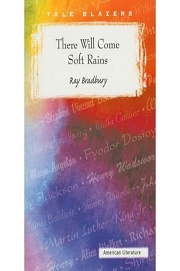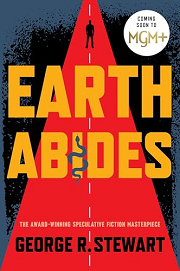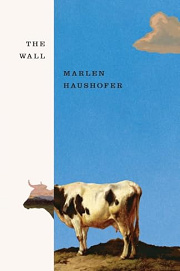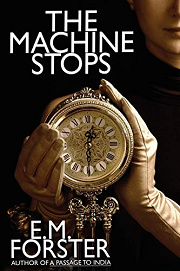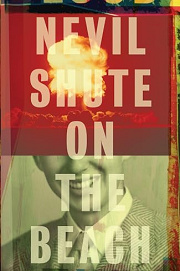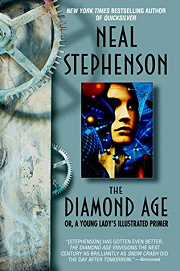Share your thoughts in a quick Shelf Talk!
There Will Come Soft Rains by Ray Bradbury
In an empty house that still cleans itself and cooks breakfast, the day carries on without anyone there to live it. There Will Come Soft Rains is a haunting, lyrical vision of technology’s endurance and humanity’s fragility.
Have you read this book? Share what you liked (or didn’t), and we’ll use your answers to recommend your next favorite read!
Love There Will Come Soft Rains but not sure what to read next?
These picks are popular with readers who enjoyed this book. Complete a quick Shelf Talk to get recommendations made just for you! Warning: possible spoilers for There Will Come Soft Rains below.
In There Will Come Soft Rains, did you enjoy ...
... the quiet, after-the-bomb hush and the ritual of daily routines carrying on in a ruined world?
Earth Abides by George R. Stewart
If the automated breakfasts, nursery parades, and tireless cleaning mice continuing their duties after the charred silhouettes on the wall moved you in Ray Bradbury’s story, you’ll be gripped by Earth Abides. Ish wanders an emptied San Francisco cataloging what still works, then slowly rebuilds a humble life where small acts—lighting a stove, tending a garden—matter as much as grand visions. Like the house reading Sara Teasdale’s poem to no one, Stewart lingers on the ordinary rhythms that persist when humanity falters, turning routine itself into something haunting and profound.
... a single, confined setting where meticulous daily tasks become a lifeline and a meditation on solitude?
The Wall by Marlen Haushofer
If you were drawn to the tight focus of one smart house moving through its schedule—announcing the time, making meals, fighting the final fire—The Wall offers that same intense intimacy. Trapped behind an invisible barrier in an alpine valley, an unnamed woman documents each chore—chopping wood, feeding a cow, caring for a dog—with the same quiet gravity that Bradbury gives the house’s routines. Where the automated voice recites poetry to emptiness, Haushofer’s narrator writes to posterity, both transforming simple acts into a stark, absorbing survival liturgy.
... a chilling vision of total automation as a fragile substitute for human life and connection?
The Machine Stops by E. M. Forster
If the talking rooms, obedient kitchen, and scurrying mechanical mice in Bradbury’s story felt like a warning, The Machine Stops is that warning writ large. Vashti’s world is sustained by an all-providing Machine that, like Bradbury’s house, answers every need—until it doesn’t. Kuno’s desperate attempt to reach the surface echoes the futility of the house’s last stand against the blaze. Both tales turn seamless convenience into an eerie cathedral of dependence, and when the system falters, the silence that follows is deafening.
... the stark, humane reckoning with nuclear aftermath and what persists when the end is certain?
On the Beach by Nevil Shute
If the ash-white silhouettes burned into the house’s wall and the nursery’s ghostly menagerie made you feel the cost of annihilation, On the Beach will meet you with the same moral clarity. In Melbourne, Dwight Towers and Moira face the slow approach of fallout with small kindnesses and everyday rituals—sailing, driving lessons—mirroring the house’s futile breakfasts and bedtime stories. The result is a tender, devastating portrait of dignity at the brink that echoes Bradbury’s quiet, uncompromising message.
... wondrous, domestically embedded tech whose conveniences feel as enchanting—and unsettling—as magic?
The Diamond Age by Neal Stephenson
If Bradbury’s self-cooking kitchen, obedient stove, and chore-scurrying ‘mice’ fascinated you, The Diamond Age immerses you in a world where nanotech matter compilers and smart paper turn homes into conjuring spaces. Young Nell’s interactive Primer—like the house’s voice that recites Sara Teasdale—educates, entertains, and shapes her fate. The book revels in the marvel of engineered comforts while probing their social consequences, capturing the same awe-and-unease you felt watching the house perform its miracles right up to the moment the fire takes it.
Unlock your personalized book recommendations! Just take a quick Shelf Talk for There Will Come Soft Rains by Ray Bradbury. It’s only a few questions and takes less than a minute.
